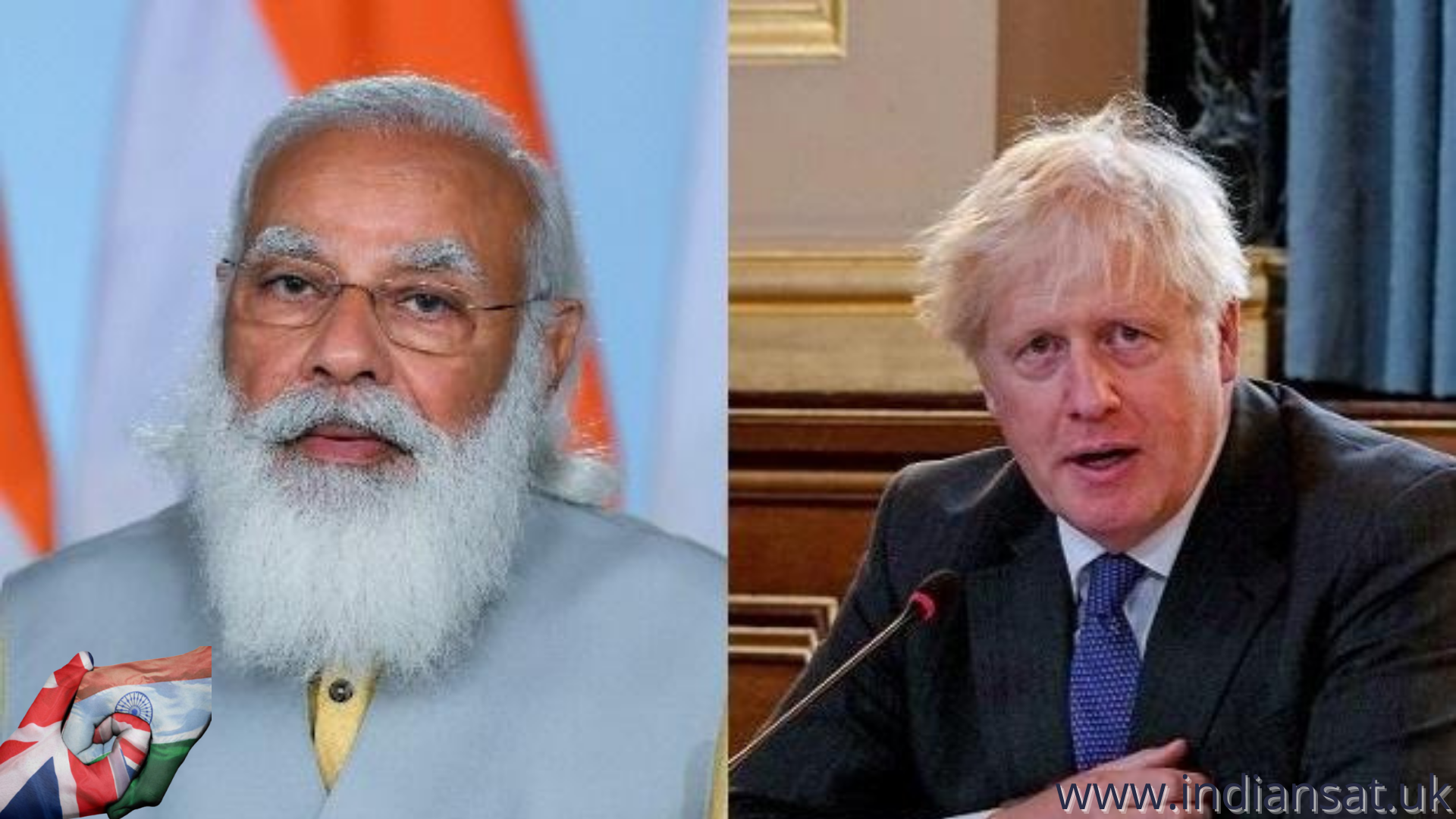PM Modi, Boris Johnson discuss vaccine certification, trade, climate
British Prime Minister Boris Johnson spoke to Prime Minister Narendra Modi on Monday, urging India to announce a “more ambitious” Nationally Determined Contribution (NDC) ahead of a United Nations climate change summit in the U.K. in a few weeks. The two leaders also spoke about the issue of vaccine certifications and the Afghanistan situation.
British Prime Minister Boris Johnson spoke to Prime Minister Narendra Modi on Monday, urging India to announce a “more ambitious” Nationally Determined Contribution (NDC) ahead of a United Nations climate change summit in the U.K. in a few weeks. The two leaders also spoke about the issue of vaccine certifications and the Afghanistan situation and close cooperation in the defence and security sphere.
“Prime Minister conveyed India’s commitment to Climate Action, as seen in its ambitious target for expansion of renewable energy and the recently announced National Hydrogen Mission,” a Ministry of External Affairs (MEA) statement said.
The U.K. wants NDCs updated
As president of the coming climate change conference, the U.K. is asking all countries to update their NDCs to reflect climate targets for the next few decades.
“Prime Minister [Johnson] underlined the importance of making concrete progress on climate change ahead of and at the upcoming COP26 Summit. He noted that India already lead(s) the world in renewable technology and expressed his hope that they will commit to a more ambitious Nationally Determined Contribution (NDC) and to achieving Net Zero emissions,” said an official release from the U.K. government on the conversation.
One hundred and ninety-three countries filed their first NDCs, but only 19 have so far updated them. India filed its first NDC in 2016, committing at the time to cut emissions by 33% by 2030 (from 2005 levels) and to ensure that about 40% of its installed power capacity comes from renewable energy, targets that the government says it is on track to reach. However, the U.K. and the U.S. have been asking India to do more in terms of declaring its second NDC, which includes India’s promise of installing 450 GW of renewable energy by 2030, and to declare firm deadlines for achieving “Net Zero” carbon emissions and ending the use of coal for generating electricity, so as to keep global warming below 1.5 degrees Celsius.
Mr Modi has been invited to the U.N. Climate Change Conference of the Parties (COP26) in Glasgow on 31 October – 12 November but has not confirmed his attendance yet. He had been due to attend the G-7 summit as a special invitee in the U.K. in June last but had to cancel the visit due to the second wave of the pandemic. Mr Johnson is also expected to reschedule his proposed visits to India in January and April this year, which had to be put off due to the pandemic as well.
Foreign Secretary visit
However, high-level visits by two ministers, including the new British Foreign Secretary Liz Truss are expected shortly and could coincide with India-U.K. naval exercises involving the U.K. Carrier Strike Group led by HMS Queen Elizabeth. Ms Truss spoke to External Affairs Minister S. Jaishankar over the telephone last week about the vaccine issue as well as the U.K. India “Roadmap” forties till 2030 and an enhanced trade partnership.
According to the U.K. statement, Mr. Modi and Mr. Johnson discussed the importance of “cautiously opening up international travel”, and the issue of vaccine certification.
Covishield recognition
Last week, the U.K. agreed to recognise Indian-administered Covishield and waived the need for nationals from India and 36 other countries to undertake home quarantines as long as they are vaccinated. However, the U.K. does not yet recognise India’s Covaxin, which is awaiting clearances from the World Health Organisation.
“They agreed the U.K.’s recognition of Indian vaccine certification is a welcome development to that end,” the British statement said.
The leaders also talked about Afghanistan, both sides said. “In this context, they agreed on the need to develop a common international perspective on issues regarding extremism and terrorism, as well as Human Rights and rights of women and minorities,” the MEA statement added.
![]()






